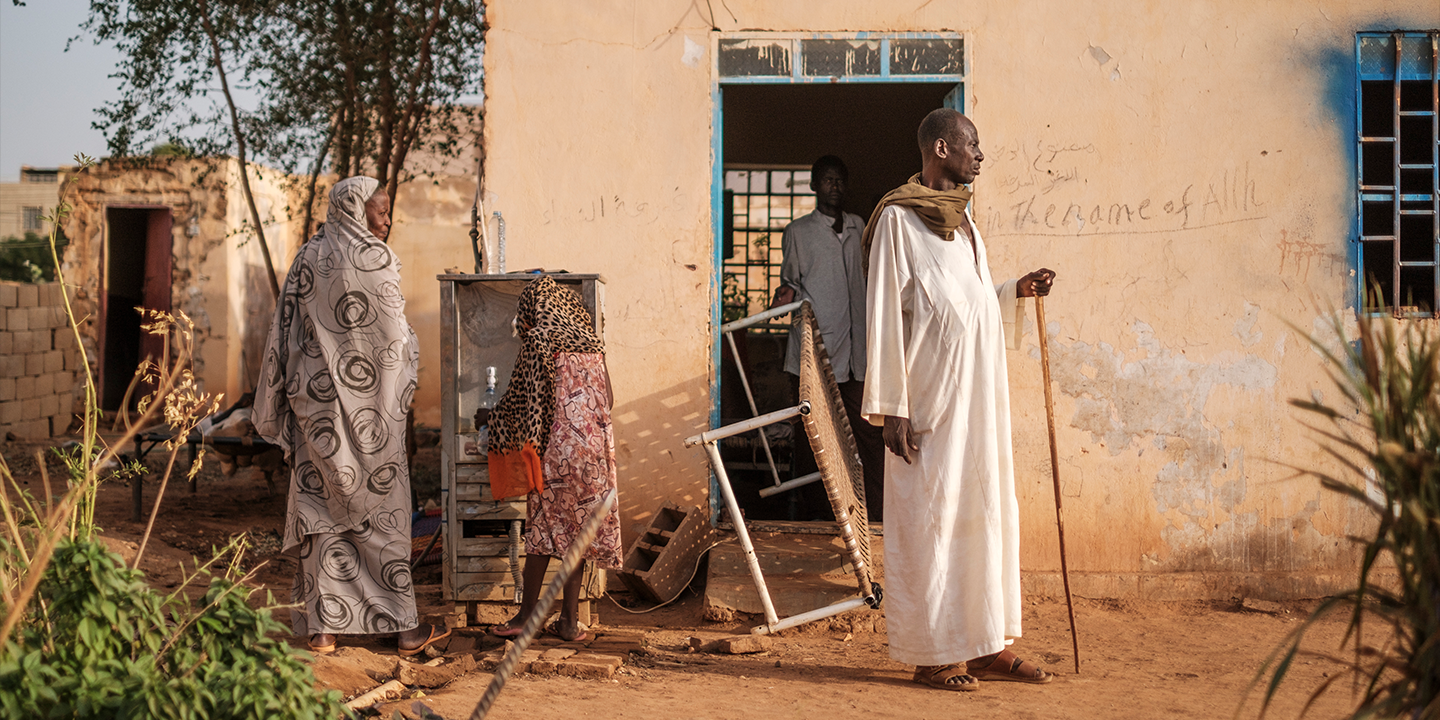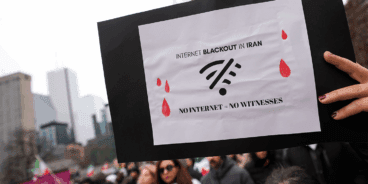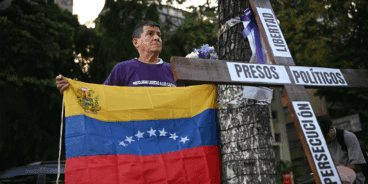

Atrocity Alert No. 410: Sudan, Myanmar (Burma) and Nigeria
Atrocity Alert is a weekly publication by the Global Centre for the Responsibility to Protect highlighting situations where populations are at risk of, or are enduring, mass atrocity crimes.
CIVILIANS AT RISK OF ATROCITIES AS FIGHTING ESCALATES FURTHER IN EL FASHER, DARFUR
Populations in and around El Fasher, North Darfur, are once again facing an imminent risk of atrocity crimes as fighting escalates between the Rapid Support Forces (RSF) and Sudanese Armed Forces (SAF). A 13 September report by the Yale School of Public Health’s Humanitarian Research Lab (HRL) confirmed unprecedented large-scale combat operations in El Fasher, representing a “new stage of the conflict.” In a statement on 15 September the UN Resident and Humanitarian Coordinator in Sudan, Clementine Nkweta-Salami, expressed her “profound sadness and frustration” over the continued violence and said that “This is heartbreaking and must stop. There is no excuse for direct attacks on civilians, their assets and essential facilities.”
The current escalation follows multiple warnings of an imminent attack on El Fasher, which remains the only capital in Darfur outside of RSF control. Amid the end of the rainy season in Sudan, the HRL report describes El Fasher as a “free-fire zone” for both the SAF and RSF and indicates that the RSF is attacking the town from the north, east and south. The report also warns of a significant increase in airstrikes and aerial bombardments, forecasting that “current levels of high-tempo combat activity are likely to effectively reduce what is left of El Fasher to rubble.”
The RSF have utilized the conflict to launch a systematic campaign of ethnic cleansing and large-scale attacks targeting non-Arab communities, possibly amounting to the crime of genocide. Of particular concern are the hundreds of thousands of people in the Zamzam camp, one of the largest displacement camps in North Darfur. The RSF have previously targeted internal displacement camps, and there is a strong likelihood that if they capture El Fasher, Zamzam could become a target due to its strategic location and the presence of armed actors there. Adding to the dire situation, a famine was officially declared in Zamzam on 1 August, which further exacerbates the vulnerability of the camp residents, who are already at an increased risk of targeting or violence due to their ethnic background.
Despite the growing severity of the threat to populations in El Fasher, the international community has been slow to respond, even in the face of compelling evidence of war crimes and crimes against humanity committed by the RSF and SAF since April 2023. UN Security Council Resolution 2736, adopted in June, remains largely unimplemented, raising concerns about the effectiveness of efforts to establish localized ceasefires and ensure humanitarian access. The international community should support efforts to end the fighting between the RSF and SAF, assess the risk of mass atrocities and act urgently to prevent further deterioration in Darfur. All states and entities must immediately comply with the arms embargo, halting any supply of weapons, ammunition or support to the warring parties.
UN EXPERTS DECRY WIDESPREAD AND GROWING ATROCITIES IN MYANMAR
Violence has continued to escalate across Myanmar (Burma) as the military junta struggles to combat the various ethnic resistance organizations fighting against it, putting civilians across the country at heightened risk. On 9 September the Head of the UN Independent Investigative Mechanism for Myanmar (IIMM), Nicholas Koumjian, presented the group’s annual report to the Human Rights Council, which documented substantial evidence of more frequent and brutal war crimes and crimes against humanity committed by the military. The IIMM said “victims and witnesses have recounted beatings, electric shocks, strangulations and torture… There is evidence that minors and other victims of all genders have been subjected to gang rape, burns on sexual body parts and other violent sexual and gender-based crimes.”
Meanwhile, the UN Children’s Fund (UNICEF) released a statement on 12 September alerting that children are bearing the brunt of the junta’s attacks and being killed “in the very places where they should feel safe.” UNICEF warned of an increasing pattern of violations against children, stating in 2024 alone at least 600 children have been killed or injured so far. The IIMM also echoed the impact of the junta’s daily airstrikes, which have targeted civilian spaces, including internal displacement camps, community centers, weddings, schools, monasteries and more. Between April 2023 and June 2024 the Office of the UN High Commissioner for Human Rights documented 2,414 civilians killed by the military, with hundreds killed by airstrikes and artillery attacks, amounting to an increase of 50 percent compared with the previous reporting period.
While the situation across the country has severely declined since the end of 2023, the crisis in Rakhine State remains one of the most dire. The Rohingya, a distinct Muslim ethnic minority, continue to be caught in the middle of escalating fighting between the Arakan Army (AA), an ethnic Rakhine armed group, and the military in Rakhine State. In response to the territorial advances by the AA, the military has carried out relentless indiscriminate airstrikes and blocked Rohingya attempting to flee, while reports indicate that the AA is also committing atrocities against Rohingya civilians, including mass arrests, forced displacement, looting and the blocking of humanitarian aid. Despite the ongoing risks in Rakhine State, Bangladesh has asserted it cannot receive additional refugees and increased border patrols in attempts to prevent Rohingya from crossing.
The international community has yet to address the deteriorating situation in Myanmar with the urgency it demands. Sarah Hunter, Myanmar expert at the Global Centre for the Responsibility to Protect, said, “For too long the junta has been emboldened by near-complete impunity for atrocities in Myanmar. States must work to ensure that civilians are protected, including through adopting a strong UN Security Council resolution and cutting off access to the jet fuel the junta uses to target and kill civilians.”
OVER 128 KILLED IN SUSPECTED BOKO HARAM ATTACK, MARKING DEADLIEST ASSAULT IN YEARS
On 1 September suspected Boko Haram insurgents launched a devastating attack in northeastern Nigeria, killing at least 128 villagers in Mafa, Yobe State. Approximately 150 militants, armed with rifles and rocket-propelled grenades, stormed the village while also reportedly planting improvised explosive devices along roads leading to Mafa. Authorities are still verifying the number of civilians killed, injured and missing, with reports suggesting that casualties could be even higher. The incident is one of the deadliest attacks by the group in recent years.
The UN Resident and Humanitarian Coordinator in Nigeria, Mohamed Malick Fall, condemned the attack and called on all armed actors “to adhere to their obligations under international humanitarian law to protect civilians from harm. The armed actors who perpetrated these attacks must be identified and brought to account – in compliance with international human rights law – as a first step towards reining in the impunity that feeds these attacks.”
Those who discovered the bodies found a lengthy note supposedly left in the name of the Islamic State West Africa Province (ISWAP), a Boko Haram splinter group, listing purported grievances. The note accused the villagers of collaborating with government authorities and killing the group’s members. According to a police spokesman in Yobe State, the attack was in retaliation for the killing of two suspected Boko Haram fighters by local vigilantes.
Boko Haram and its splinter groups, including ISWAP, have committed mass atrocities in northeastern Nigeria for over a decade. Originally formed in the early 2000s, Boko Haram began its insurgency in 2009, seeking to overthrow Nigeria’s secular government and establish an Islamic state. The group’s brutal tactics include suicide bombings, abductions, torture, rape, forced marriages, the recruitment of child soldiers and attacks on government infrastructure, traditional and religious leaders and civilians. Although Boko Haram has been relatively quiet in recent years, this is the second alleged major attack by the group in the last few months.
Yobe State is one of three regions at the forefront of Boko Haram’s insurgency, which has resulted in the deaths of tens of thousands and displaced over 2 million people. Armed groups like Boko Haram have strengthened their position by allying with “bandits,” criminal groups that raid villages, kill and abduct residents and burn homes after looting them.
In response to the multiple security crises facing populations in Nigeria, federal and state authorities must improve coordination to develop a unified strategy that addresses ongoing protection issues. Beyond strengthening military security for vulnerable populations, social initiatives and political reforms are also essential to tackling the root causes of the conflict, such as poor governance, corruption, poverty and youth unemployment – compounded by the country’s most severe economic crisis in decades.
Related Content


Atrocity Alert No. 465: Iran, Israel and the Occupied Palestinian Territory and Myanmar (Burma)
